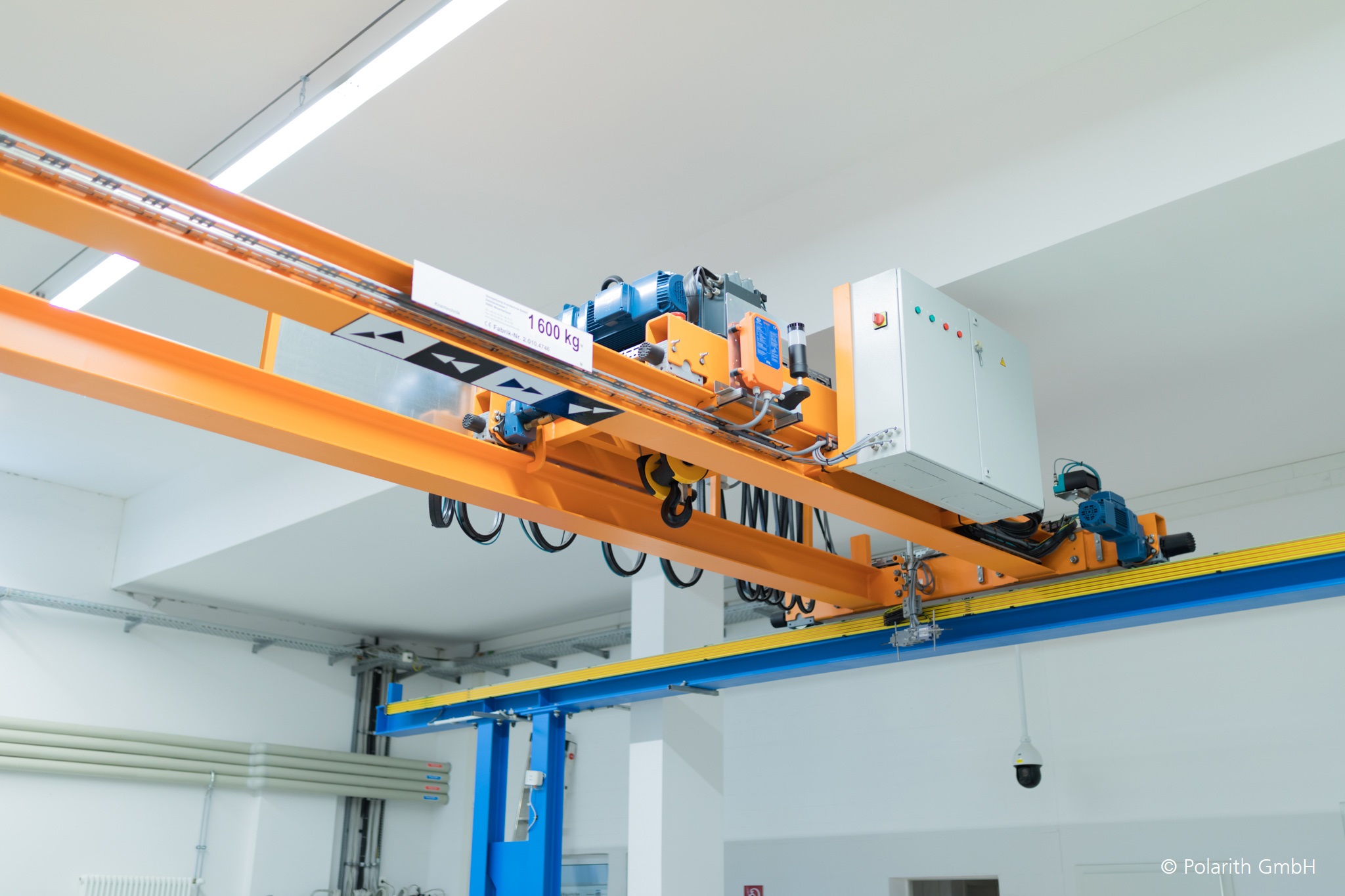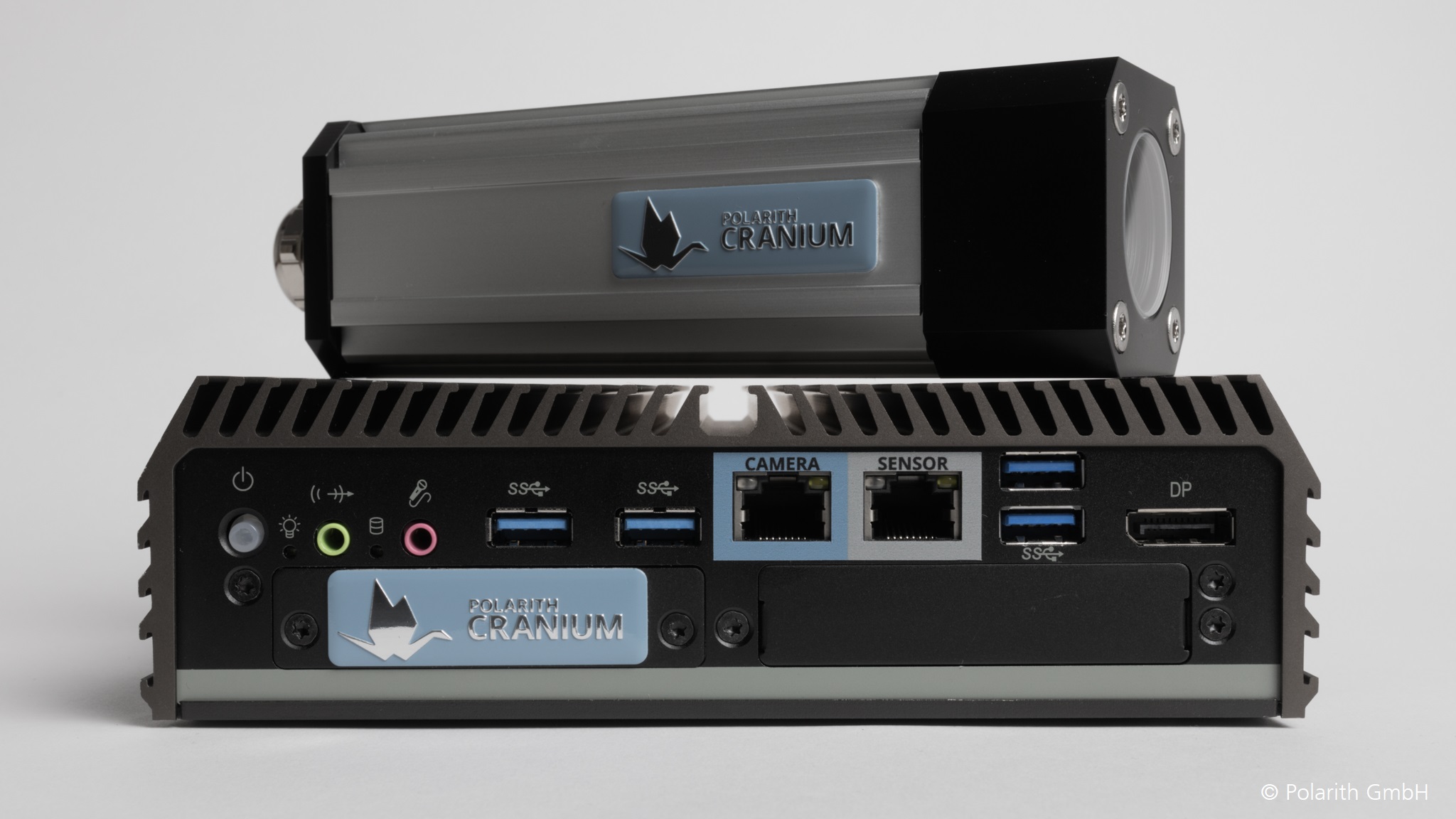Accident prevention in the vicinity of a bridge crane with AI – conception of a data collection
The Challenge
Polarith GmbH is a company in Saxony-Anhalt offering services and products in the hardware and software sector. This includes the control system of overhead cranes, machines used in the commercial sector to transport loads. The load hanging from the crane is particularly dangerous and can cause accidents when it is swivelled or lifted. The Cranium control system developed by Polarith dampens the dangerous vibrations of the load, among other things.
The Solution
In order to further improve the technical procedures in Cranium for preventing a load collision, Polarith in cooperation with the Mittelstand 4.0 Competence Centre Magdeburg aimed the solution of a contactless detection of people as part of a prediction of collision with loads. A literature search has revealed an artificial convolutional neural network with colour and distance data in its input layer as a promising detection method. The LiDAR camera with a maximum depth detection of nine metres attached to the trolley of an overhead crane turned out to be suitable for the application, providing data of the surrounding area.
A concept paper according to Gebru et al. documented the motivation, composition, collection process and recommended use of the data. The data collection took place at the Galileo test site of Otto-von-Guericke University Magdeburg. An artificial convolutional neural network has been trained and tested using the static image data set. In a »mini-implementation project« consisting of five one-hour digitalisation consultations free of charge, Polarith worked with the Mittelstand 4.0 Competence Centre to reformulate the project goal and requirements into a specific machine learning problem, which resulted in a concept for sensor data collection.

The Outcome
The extensive support provided by the Competence Centre in the exploration of previously researched and new technical approaches strengthened the foundation for the later implementation of the data collection. In addition, the Competence Centre actively contributed to the preparation of the data collection in many ways. This included, for example, making an RGB-D camera available for testing.
However, it is also important to sensitise all users of AI to the critical role of data. A machine learning model rarely performs well in practical application if the context of use does not match the training or evaluation data. Careful planning and documentation of the collection of data is of immense importance in order to avoid or detect possible biases, such as image capture only in artificial light.


The Solution
In a joint digitization consultation with the managing director of the KJHZ, Mr. Sven Schulze, the idea arose to integrate a virtual language assistant into the shift handover, similar to the assistant in the »Audio-Video-Feedback Analysis« demonstrator. In order to analyze this idea in all its facets, the Mittelstand 4.0 Competence Center Magdeburg, together with the employees of the KJHZ and the Mittelstand-Digital Zentrum Chemnitz, held three workshops on the problems of »Taking employees with you«, »Data protection and labor law requirements« and »Use cases of digital shift handover«. The results were summarized in a concept. This shows the vision of a voice assistant for structured shift handover using a digital questionnaire with adaptive adjustment.
Digital shift handover with the help of voice assistance
The Challenge
The children and youth welfare center Groß Börnecke is a curative education centre for children and young people between the ages of 2 and 19 with behavioural problems in Saxony-Anhalt. 80 staff members, especially psychologists, pedagogues, educators and social workers, create a supportive development environment there. The care is organised in shifts. Shift handovers cannot always take place in person due to a time lag. In order to enable an informed handover, the staff members use various analogue aids, such as a manual duty book. However, from the staff’s point of view, this makes selected information, such as appointments, difficult to access. There are also sometimes questions that make the shift handover and thus the supervision more difficult.

